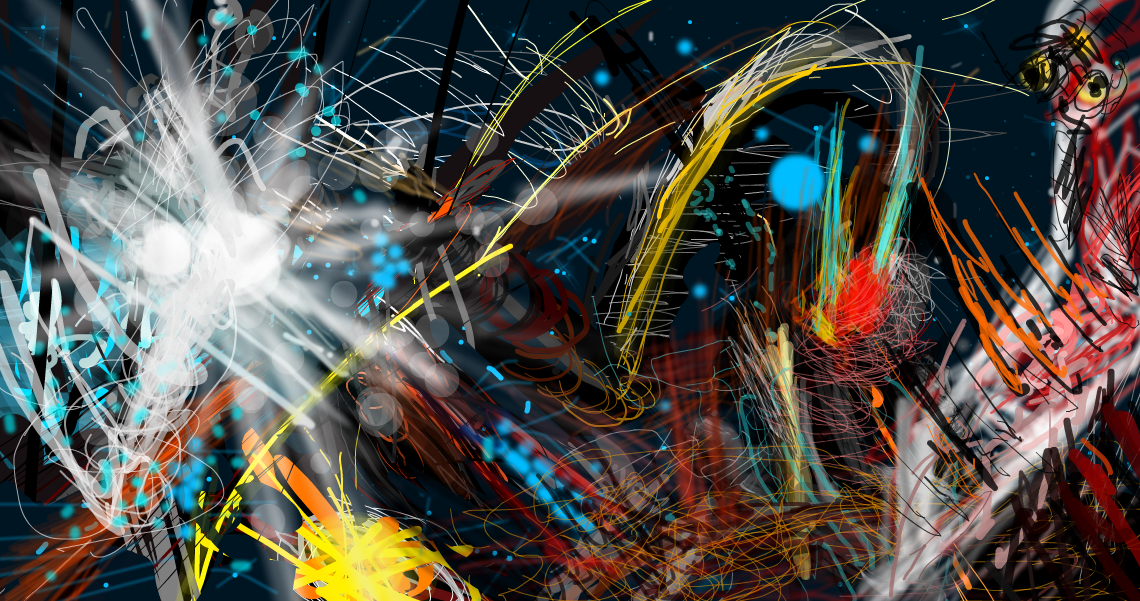Popula Editor’s note: Mada Masr is an Egyptian publication that is close in spirit to ours, covering news and culture in a raw and honest way. They also run gorgeous comics! Mada Masr co-founder Maha ElNabawi writes, “We’re still operating and publishing, but the site is again blocked in Egypt. We’ve also been under a lot of pressure with the upcoming cyber law that is meant to pass soon, as yet another measure to obliterate press freedoms.”
We are publishing pieces from Mada Masr, beginning with this series of letters from 22-year-old Abdelrahman al-Gendy, a political prisoner at Tora Prison.
The following letter was translated by Katharine Halls and edited by Laura Bird at Mada Masr.
“Wednesday isn’t blue?”
Ayman looked at me like I’d gone mad.
“Ok, what about your name. Isn’t it sort of reddish?”
“Have you lost it?” he replied with a snort, sure I was joking.
I enthusiastically started to explain the phenomenon which I’d just been reading about in a book exploring the secrets of the human mind, Incognito. It’s called synesthesia, and those who have it experience associations between certain cognitive or sensory stimuli — numbers, names, days of the week, words in general, even sounds and smells — and colors. It had amazed me to read a detailed description of something I’d experienced since I was a child, without realizing there was anything unusual about it.
As a young boy I desperately wished — like most children my age — for a superpower. I tried to fly, I attempted to move objects using the forces of my mind. But only now had I got what I wanted: synesthesia, my very own superpower.
“What about Saturday, then?,” asked Ayman.
“Light green.”
“Sunday?” He was enjoying the game.
“Purple.”
“Monday?”
“Yellow.”
“Tuesday?”
“Red.”
“Wednesday?”
“Blue.”
“Thursday?”
“Brown.”
“Friday?”
“White.”
I think back on this memory as I press my face against the metal grille of the window of the police van in which I sit, alone. It was four years ago; I haven’t seen Ayman for two years. I’m thinking about it now because, with the tumult of feelings inside me, I’m seeing another dimension to this superpower: emotion.
Injustice, brown as wet mud. Torment, a rusty red. Anger, blackish blue like an ink blot.
I’m on my way back from the Tora Prison hospital, where I’ve had an unusual swelling in my finger removed. In the detention room at the hospital, I ask after Ammad. When I describe him, they say they know him. Then they tell me he’s dead.
The ink blot explodes again behind my eyes. I try to push the memory away: anger stains the soul just like an ink blot spoils the page.
I force my eyes to focus on the street outside, which I haven’t seen for two years. The most trivial things provoke multitudes inside me.
A man walking. Another talking on the phone. A bunch of guys standing around a drinks cooler. Two young women on their way home from somewhere, or maybe going, I can’t tell. Cats eating from an overflowing bin. Cars speeding past, kinds I know and others I’m seeing for the first time.
Trivial things. Wretched. Painful. I never imagined I’d miss them so much. I’m filled with a nostalgia that’s tinged with rusty red.
Will I one day go back to seeing these things like others do? Or will the metal grille always interpose itself, until I die?
Do I have any hope of settling back into life, of forgetting and wiping clean? Or will this sense of alienation be a loyal friend who walks arm in arm with me, promising never to leave my side?
I get out of the van and unconsciously hold out my arm for someone to undo the handcuff around my wrist. I enter the prison deep in thought. I glimpse some families watching me with pity and sympathy. Their gazes remind me of the look of the doctor talking to me, a few hours ago, during the operation.
I hate looks of pity. I’d prefer people to look at me with hatred — that way I can despise them. When they look at me with pity, I despise myself.
I’ve never pursued anything in my life that would make me an object of pity.
I lie on my back in the cell and stare up at the ceiling. A line from a children’s hymn I used to like comes to mind: “Do not fear, for the wound will heal. And the darkness of the night won’t last too long.”
Maybe the wound will heal, I think, but the scars won’t fade.
When I close my eyes, the inside of my eyelids is a muddy brown.
Mada Masr Editor’s note: 22-year-old student Abdelrahman al-Gendy was arrested from a car in Ramsis Square, Cairo, with his father in October 2013, several months after the ouster of former President Mohamed Morsi. They were charged, along with more than 60 others, with murder, attempted murder, vandalism, possession of weapons and disturbing the public peace, and were sentenced to 15 years in prison, five years probation and a LE20,000 fine by the Cairo Criminal Court on Sept 30, 2014. In March 2016, their final appeal was rejected by the Court of Cassation.
Gendy had won a scholarship to study engineering at the German University in Cairo and was not yet 18 years old when he was arrested. He lost his place at the university as a result of his imprisonment, and is currently enrolled at Ain Shams University and studying from Tora Prison.
Abdelrahman al-Gendy





